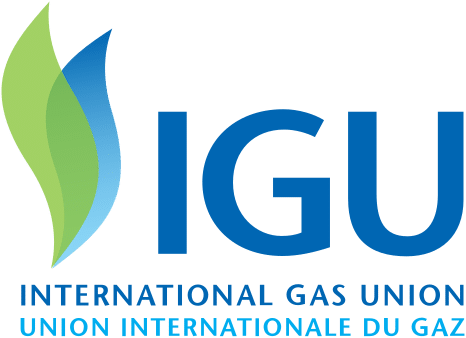International Gas Union Reaction to the IEA World Energy Outlook 2017
- Natural gas to become more prominent in global energy mix than ever before
- IEA cites the “strong environmental dimension” in the case for natural gas and lauds natural gas’ “multiple roles across the energy system that no other fuel or technology can match”
Barcelona, 14 November 2017 – The International Gas Union (IGU) welcomes the information released today by the International Energy Agency (IEA) in this year’s World Energy Outlook (WEO), with its fuel focus on natural gas. The Outlook suggests that the prospects for natural gas “will be determined by how it is assessed by policy-makers and prospective consumers against three criteria: is it affordable, is it secure, and is it clean?” The IGU argues strongly that the response to all three questions is an emphatic ‘yes’.
As stated in this year’s WEO, global gas consumption is set to grow at an average rate of 1.6% per year to 2040 – a higher growth projection than oil or coal – and is expected to account for a quarter of global energy demand by the same date (according to the IEA’s New Policies Scenario). These growth projections highlight the critical importance of gas in the global energy mix – both as a sustainable and affordable option, and as an option that complements the rising use of renewable energies.
The IGU commends the IEA for recognising the enormous versatility benefit of gas and strongly agrees with the IEA’s comments that “it can play multiple roles across the energy system in a way that no other fuel or technology can match, generating power, heat, and mobility with fewer CO2 and pollutant emissions than other fossil fuels”.
“This year’s WEO is extremely positive for the natural gas industry – highlighting the absolutely essential role we have to play in the global energy mix delivering an affordable, versatile and sustainable fuel,” said David Carroll, President of the IGU. “In addition, the IGU fully supports urgent and increased efforts towards climate change mitigation. We strongly believe natural gas is perfectly positioned to make a significant positive impact to air quality, while reducing carbon emissions.”
The environmental argument for natural gas is also highlighted by the IEA, as a fuel that releases 40% less CO2 than the combustion of coal and 20% less than the burning of oil. As such, natural gas can play an extremely positive role in improving urban air quality and reducing air pollution – a cause linked to over nine million deaths, or one in every six deaths globally, in 2015[1].
The WEO also examines the role of methane emissions in the natural gas value chain – as the natural gas industry continues to further its efforts to mitigate methane emissions. Methane is the primary component of natural gas, and reductions of methane emissions are important for operational efficiency, safety, and environmental excellence. The natural gas industry has and continues to focus on measurement, documentation, and reduction efforts. The IGU is committed to work with the industry to:
- Improve confidence in the accuracy of measurement, quantification, and reporting of methane emissions through sharing of latest developments in field and academic research
- Encourage systematic reduction of methane emissions through operations management, including the sharing of the most effective approaches within and across the value chain
- Promote the rapid advance, development, and commercial deployment of new cost-effective methane detection, measurement, and reduction technologies
- Encourage scientific research into the sources of methane emissions and understanding of methane in the environment
The IGU has recently published two reports on the methane emission challenge, “The Natural Gas Industry Methane Emissions Challenge” – which features seven detailed case studies from around the world, detailing methane emissions reductions programs undertaken by our members – and “Understanding Methane’s Impact on Climate Change”. Both reports can be downloaded from the IGU website (http://www.igu.org/publications-page).
For case studies that demonstrate the role that natural gas can play in improving air quality and complementing renewable energies, please visit http://www.igu.org/news/case-studies-enabling-clean-energies.
-Ends-
For more information
Menelaos (Mel) Ydreos
Director, External Affairs
International Gas Union (IGU)
Tel: +1-416-568-8382
Email: mydreos@igu.org
About The International Gas Union (IGU)
The International Gas Union (IGU) was founded in 1931 and is a worldwide non-profit organisation aimed at promoting the political, technical and economic progress of the gas industry. The Union has more than 150 members worldwide on all continents, representing approximately 97% of the world gas market. The members of the IGU are national associations and corporations within the gas industry worldwide. The IGU organises the World Gas Conference (WGC) every three years, with the forthcoming WGC taking place in Washington, D.C., United States, in June 2018. The IGU’s working organisation covers all aspects of the gas industry from exploration and production, storage, LNG, distribution and natural gas utilisation in all market segments. www.igu.org
